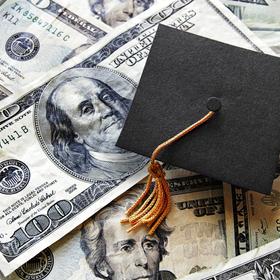Tuition at private schools ranges from $5,000 a year for primary grades in a parochial schools to over $60,000 a year for boarding school. Like the wide range of private schools available, the costs vary greatly for several reasons. Sound management and healthy endowments are two major reasons some schools seem to be able to offer more for less.
Remember: American private schools receive no state funding, yet they must comply with all the laws and regulations which affect their daily operation. Retrofitting older buildings with new technologies, maintaining extensive physical plants, coping with soaring health and liability insurance, legal, and energy costs are just a few of the factors which come into play in determining tuition fees. While private schools are theoretically exempt from property taxes, most of them make substantial contributions to their local towns and cities to help offset the cost of maintaining police and fire protection. The overhead at a private school is enormous and complex with all the attendant impact on fees.
There are a host of ‘extras’ which also must be factored into the cost of an American private school education. Text book and academic material fees, sports fees, clothing, uniforms, transportation to and from school, application fees – the list seems endless. Most schools will provide a breakdown of the ‘extras’ for you upon request.
Financial Aid
Financial aid for expats is generally not available. The assumption is that your company will pay for your child’s education as part of your compensation package. That’s fairly standard practice. It’s also a reason why you will find international and British-American schools in major American cities. These schools have sprung up to take care of the needs of expats who are in the U.S. for the short term and who do not want their children to miss any part of their British style education. While most schools will not award financial aid to foreign students, always ask about financial aid. Because each American private school is an independent corporate entity, it makes its own policy decisions about everything including the awarding of financial aid.
Due Dates For School Fees And Other Expenses
Private school tuition fees in the United States are generally due and payable in two installments: one due in August, the second in December. The typical school year runs from mid September through early June. Monthly payment plans are generally available as well. Most of these plans simply divide the gross tuition and charges by 10 and you pay that amount monthly. You will be required to purchase tuition insurance in case you have to withdraw your child for some reason. Some schools will also allow you to pay for a whole years tuition and fees in advance.
The fees which the school charges for tuition and room and board only cover those expenses. You will be billed monthly for any additional expenses or sundries, as some schools prefer to call them. These can include uniforms, athletic expenses, extra-curricular activity expenses, meals, trips, music lessons, riding lessons, and so on.
Visa Requirements for Study in the U.S.
The Department of Homeland Security handles all entry requirements for prospective foreign students. Note the following information from the DHS which will instruct you how to proceed with applying to American private day and boarding schools. Be aware that applying to schools and obtaining the necessary visas takes a great deal of time. Do not leave this part of the process to the last minute.
Financial Information
"Prospective international students who wish to study in the United States must be able to prove their ability to pay for their educational program, a place to stay and other applicable living expenses while in the United States. Determination of the living expenses figure is an institutional decision and schools must receive a student’s financial evidence and report the student’s assets before issuing the Form I-20, 'Certificate of Eligibility for Nonimmigrant Student Status.'
While F-1 and M-1 students are not eligible for U.S. government-funded financial aid, private schools may decide to award financial aid or scholarships to a student. This ability to award financial aid is dependent on the school’s financial aid policies and governing regulations. Prospective international students can use government tools and information, such as EducationUSA’s Find Financial Aid tool, to access financial aid resources designed specifically for international students."
This video explains the steps involved in getting a student visa.
Other Admission Requirements
Most private schools will require your child to take a standardized admissions test such as the SSAT. They will also require you to take the TOEFL if English is not your native language. The instruction and other communications in American private schools are given in English. As a result, proficiency in English is a must.
The schools in which you are interested will have detailed instructions about the international student application process. In addition, most of them make trips to foreign countries from which their current international students have come. Always ask if and when the admissions staff will be in your country.
Questions? Contact us on Facebook. @privateschoolreview














